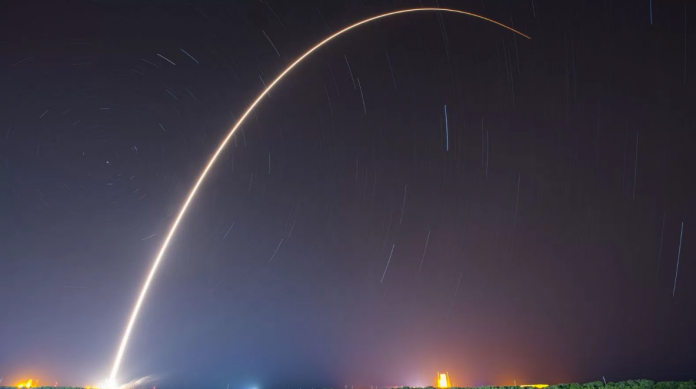
The rocket stuck the landing – but even the man who owned it hadn’t felt good about its chances.
As the primary stage of a SpaceX Falcon 9 rocket fell back toward the Atlantic early Friday, it came down toasty. The rocket’s powerful engines had blasted into sub-orbital space, depositing the second stage and a Japanese satellite that now sits some 23,000 miles up. Despite the heat, the first stage did not blow up when it landed on a robot barge, named “Of Course I Still Love You,” which floated in the dark off the coast of Florida.
Elon Musk, the billionaire chief executive of SpaceX, had previously put the odds of not crashing at a coin toss, at best. This brings SpaceX’s total sea landings to two, following the private spaceflight company’s successful mission in April. (Four previous sea landing attempts went down in flames.) Because this particular rocket was traveling farther and faster than the prior success, a landing was “unlikely,” SpaceX wrote on YouTube before the successful sea landing.
SpaceX is part of a larger push toward commercial spaceflight, which includes Richard Branson’s Virgin Galactic and Jeff Bezos’ company Blue Origin. (Bezos also owns The Washington Post.) Blue Origin has landed rockets as well, though its efforts are focused on lower passenger flights rather than orbital payloads like SpaceX.
By reusing the primary rocket stage, SpaceX hopes to slash the price of delivering payloads to space, which currently costs NASA about $10,000 per pound. The first reused Falcon rocket stage is set to launch later this year, part of an ambitious flight schedule that’s supposed to culminate in a rocket aimed at Mars in 2018.
In the meantime, as Musk wrote on Twitter, he “may need to increase size of rocket storage hangar.”

